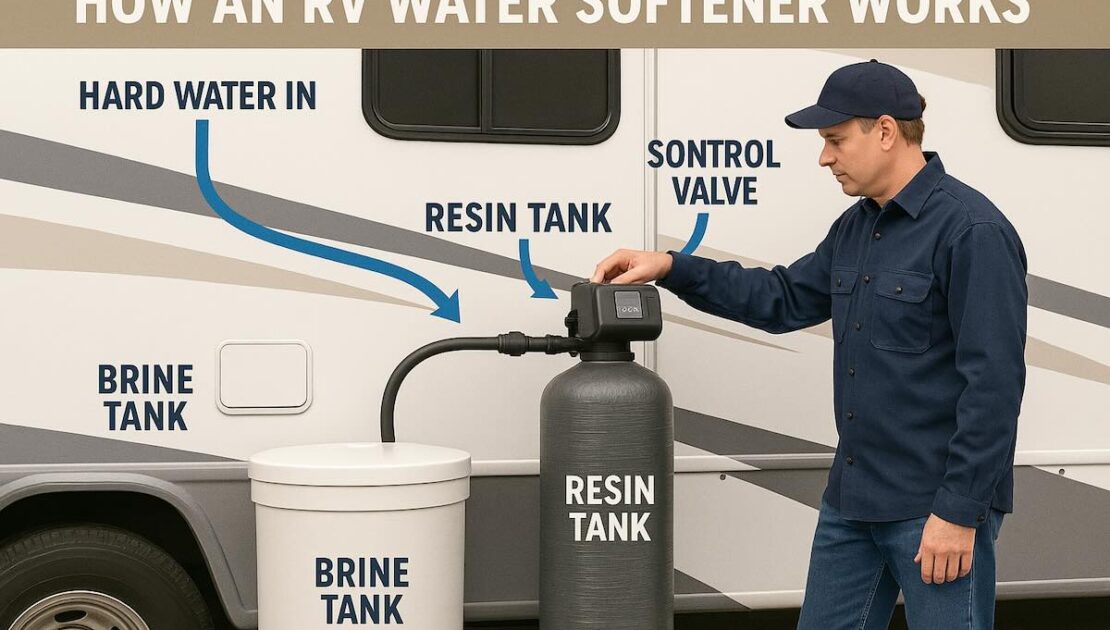If you travel frequently in your RV, you’ve probably noticed that water quality changes from one campground to another. Hard water — full of calcium and magnesium — can damage your plumbing, stain fixtures, and leave residue on sinks and showers. That’s why many RV owners install a water softener. But what exactly is it, and how does an RV water softener work?
What Is an RV Water Softener?
An RV water softener is a compact filtration device that removes minerals like calcium and magnesium from the water you use in your RV. This process helps prevent mineral buildup in your pipes, faucets, and appliances, extending their lifespan and improving water quality for showering, cooking, and washing dishes.
How Does It Work?
Most RV water softeners use a simple ion-exchange process — the same principle as full-size home systems, but in a portable version.
-
Water enters the softener tank, which is filled with tiny resin beads charged with sodium ions (salt).
-
As hard water flows through the beads, the calcium and magnesium ions “stick” to the resin, replacing the sodium ions.
-
The softened water then exits the tank, now free from hardness minerals.
This means your RV water becomes “soft” — easier on your plumbing and much better for washing and cleaning.
Regeneration: Keeping the System Working
Over time, the resin beads become saturated with calcium and magnesium and can’t soften water anymore. That’s when regeneration happens.
-
You flush the softener with a saltwater solution (brine).
-
The sodium from the brine replaces the trapped minerals on the resin beads.
-
The minerals are washed away, and the system is ready to use again.
Regeneration typically takes 30–45 minutes and only needs to be done every few weeks, depending on water hardness and usage.
Benefits of Using an RV Water Softener
-
Better showers – softer water feels smoother on skin and hair.
-
No mineral buildup – keeps pipes, faucets, and water heaters clean.
-
Cleaner dishes and laundry – no white spots or residue.
-
Longer equipment life – protects your RV plumbing and water system.
Types of RV Water Softeners
-
Portable salt-based softeners – most common and effective for hard water.
-
Salt-free conditioners – prevent buildup but don’t truly “soften” water.
-
Dual-stage filter + softener combos – combine softening with sediment or carbon filtration for cleaner taste.
An RV water softener works by removing minerals that cause hard water problems, using an ion-exchange process inside a compact, portable unit. It’s one of the best upgrades you can make to protect your RV’s plumbing and improve your water experience on the road.
Need professional RV maintenance or installation help?
At Custom-way in Artesia, CA, we specialize in RV water systems, roof repair, remodeling, and full-service restoration.
Call +1 840-205-7314 or email customway.ca@gmail.com to schedule your service today.

